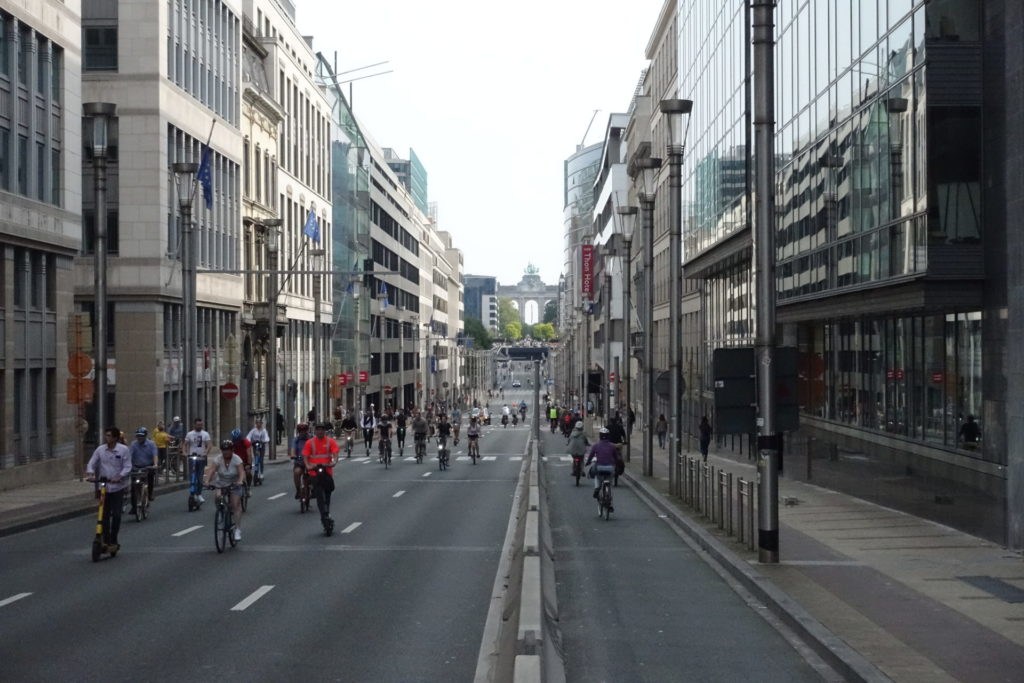Data from Brussels Environment on Car-free Sunday 2021 shows a noticeable drop in air and noise pollution in some of the busiest parts of the city - with published data showing a direct comparison between one of Brussels' busiest intersections on a normal day and one without cars.
By comparing concentrations of nitrogen monoxide (NO) and nitrogen dioxide (NO2) at busy points in the city during the day, Brussels Environment was able to offer a comparison to an average Sunday in the city.
"The most heavily used traffic routes of the capital were most affected," Brussels Environment said in a press release.
At the Arts-Loi metro station, for example, concentrations of NO and NO2 fell 82% and 86% respectively compared to an average Sunday. The drop is even more pronounced when compared to an average weekday, with NO and NO2 concentrations sitting 92% and 91% lower, according to findings.
A significant decrease was also recorded in concentrations of black carbon, which fell by 46% in Arts-Loi compared to an average Sunday and by 61% compared to an average weekday.
Not Just Air Pollution
The virtual absence of cars in the capital also saw reduced noise, with levels reduced (by more than 10 dB(A)) at measuring stations located near motorways.
"At the edge of the E411 in Auderghem and near the E40 in Woluwe-Saint-Lambert, there is talk of a 90% reduction in sound pressure," notes Brussels Environment.
Related News
- Over 65,000 cigarette butts collected in Brussels on Car Free Sunday
- ‘Transforming Brussels’: Car Free Sunday a success
- 36 Belgian cities and municipalities organise Car Free Sunday today
The decrease was also quite marked (around 5 dB(A)) for the stations on Avenue Houba de Strooper in Brussels and Rue Guillaume Tell in Saint-Gilles. This represents a reduction in the background noise of 68%.
The Brussels Times

